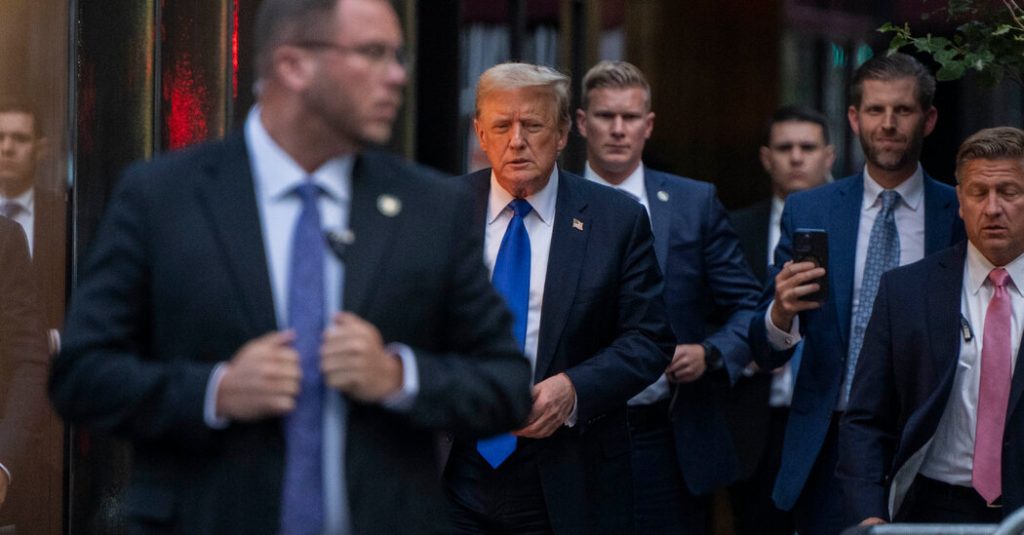There is a push among some Democratic leaders to highlight former President Donald J. Trump’s recent criminal conviction as evidence that he is unfit for office. This comes at a time when many on the left have been advocating to end the stigma surrounding criminal records and address the flaws in the legal system. In response to Mr. Trump’s convictions on 34 felony counts of falsifying business records, individuals who have also been convicted of felonies had mixed reactions. Some felt a sense of camaraderie with him, while others felt that his privileged background set him apart from them.
Rahim Buford, who founded Unheard Voices Outreach for the formerly incarcerated in Nashville, believes that both political parties have failed to address major issues in America’s criminal justice system such as wrongful convictions and racial disparities. While he doubts that Mr. Trump will face significant consequences due to his convictions, Buford sees an opportunity for criminal justice reform to gain more attention as a result. Similarly, Dawn Harrington, who directs Free Hearts for families affected by incarceration in Tennessee, found the news coverage of Mr. Trump’s conviction upsetting, especially due to the liberal celebration of him being a “convicted felon.”
The discussion around Mr. Trump’s convictions also raised concerns about the lasting impact of criminal records on individuals, such as barriers to employment, housing, and voting rights. Approximately 77 million Americans have some form of criminal record, while nearly 20 million have been convicted of felonies. However, the vast majority of those with criminal records are poor and disproportionately Black, Latino, and Native American, highlighting the stark differences between them and Mr. Trump. Most criminal cases are resolved through plea bargains, making it rare for cases to go to trial as in Mr. Trump’s case.
Despite the disparities between Mr. Trump and the typical individual with a criminal record, there is an opportunity to use his conviction as a platform to advocate for criminal justice reform. David Ayala, who lives in Florida and was convicted of conspiracy to sell drugs, recognized the potential to shed light on systemic issues in the justice system. While acknowledging Mr. Trump’s privilege and access to resources, Ayala sees the situation as a chance to address broader issues of fairness and access to justice. He also noted Mr. Trump’s past involvement in calling for the death penalty for wrongly accused teenagers in the Central Park Five case.
In crafting a statement on Mr. Trump’s conviction, leaders of the Formerly Incarcerated, Convicted People and Families Movement were cautious about aligning themselves too closely with him due to his controversial record on race. However, some, like Buford in Nashville, saw an opportunity to push for change and advocate for clemency for individuals who have committed nonviolent offenses. There is a recognition that the current political climate may present a unique moment to drive forward criminal justice reform efforts and bring attention to long-standing issues within the system. By strategizing and thinking bigger, there is potential to effect meaningful change for the millions of Americans impacted by the criminal justice system.








